- Details
- Category: Senator Michael E. Hastings News
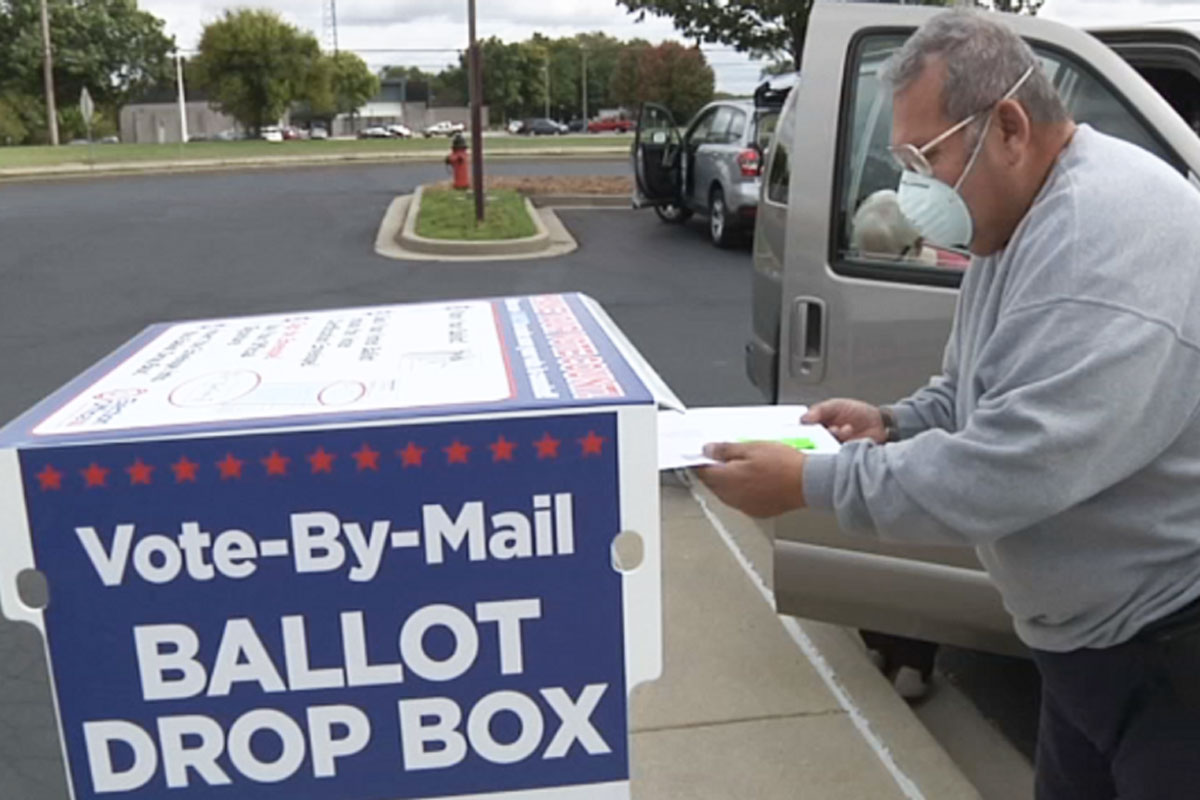 SPRINGFIELD – An expanded voting by mail program signed into law in May 2020 will be extended, further ensuring Illinoisans have access to the ballot box, State Senator Michael E. Hastings (D-Frankfort) said.
SPRINGFIELD – An expanded voting by mail program signed into law in May 2020 will be extended, further ensuring Illinoisans have access to the ballot box, State Senator Michael E. Hastings (D-Frankfort) said.
“The vote is a cornerstone of our democracy upon which civil liberties rest,” Hastings said. “Looking around the country today, there are states actively trying to limit one’s ability to exercise one of the basic, inalienable rights bestowed upon us. Because of legislation like this, that will not happen in Illinois. I remain focused on expanding the accessibility and security of the vote in our state and am proud of this common-sense solution.”
As a result of House Bill 1871, three mail-in voting opportunities which were used during the 2020 General Election will be extended:
- Allows election authorities to establish permanent ballot drop boxes and accept mail-in ballots from those drop boxes.
- Establishes a permanent requirement of election authorities to accept mail-in ballots regardless of postage paid by the voter.
- Allows election authorities to establish curbside voting for individuals to cast a ballot during early voting or on Election Day.
“As we enter the waning days of the COVID-19 pandemic, there are still those who do not feel comfortable in large crowds,” Hastings said. “Whether it is expanding access to drop boxes, curbside voting, or making sure ballots make it to the appropriate election authority, it is the right thing to do on behalf of all Illinois residents.”
This legislation is effective immediately upon receiving the governor’s signature.
- Details
- Category: Senator Karina Villa News
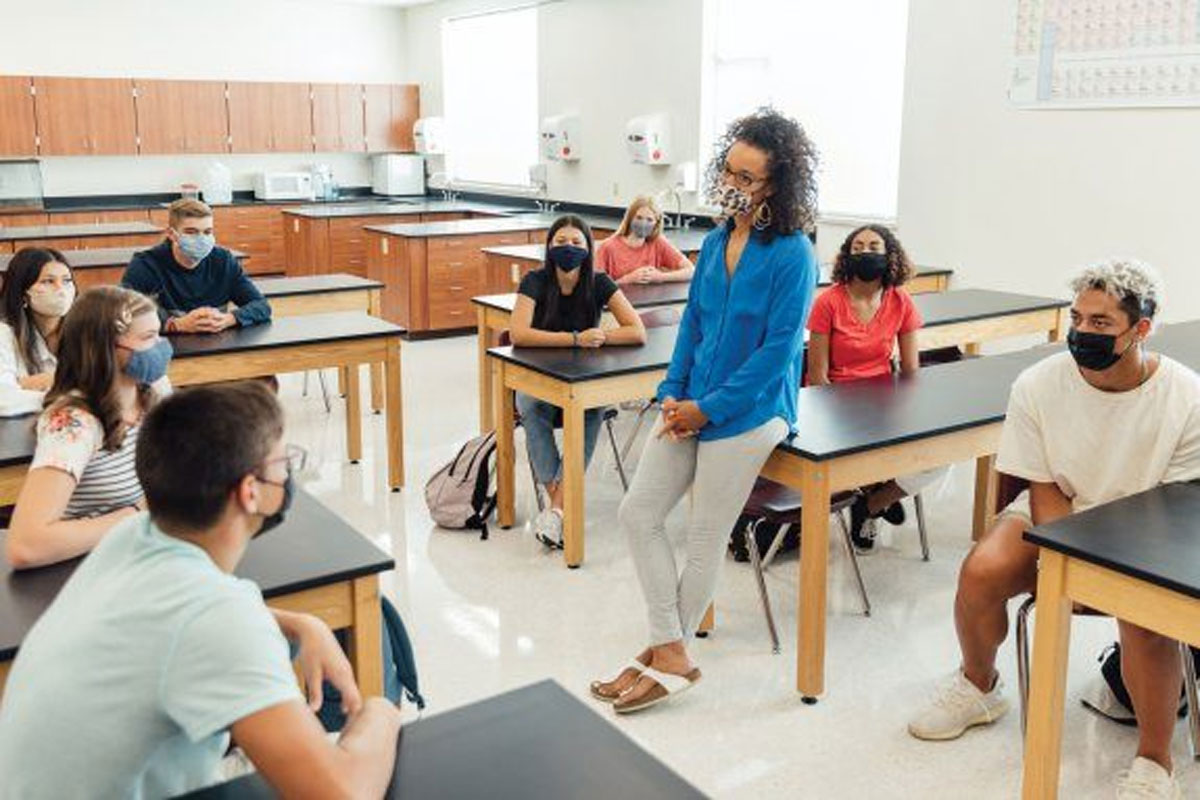 WEST CHICAGO – In an effort to diversify local educators, the Illinois State Board of Education has awarded multiple Career and Technical Education Education Career Pathways Grants to schools in the district State Senator Karina Villa (D-West Chicago) represents.
WEST CHICAGO – In an effort to diversify local educators, the Illinois State Board of Education has awarded multiple Career and Technical Education Education Career Pathways Grants to schools in the district State Senator Karina Villa (D-West Chicago) represents.
“As a former school social worker, I know firsthand the importance of a diverse workforce in our schools,” Villa said. “Investing in our students’ education is the first step in investing in our society, and I’m thrilled to see South Elgin High School receive an important grant to fund Career and Technical Education development.”
The CTE Education Career Pathways Grants were awarded to 62 schools and vocational centers across the state, totaling more than $1.5 million. Among those schools are Batavia High School, Metea Valley High School, South Elgin High School, West Aurora High School and Yorkville High School. Currently, only 18% of teachers identify as people of color, but ISBE’s CTE Education Career Pathways Grants will help increase the diversity of the CTE teaching profession in Illinois.
Applicants to the CTE Education Pathways Grant program submitted an implementation plan outlining how they would recruit underrepresented students into education careers. The grant also requires a partnership between grantees and institutions of higher education to ensure students can earn dual credit or other certifications while in high school.
“Our schools now have the funding to focus on recruiting and supporting future educators in the Career and Technical Education field, while ensuring they are well equipped to succeed in the classroom,” Villa said. “It’s important for students to have teachers and mentors who look like them and who can help prepare them for future job and education opportunities.”
A full list of the grant recipients is available on the ISBE website.
- Details
- Category: Senator Julie A. Morrison News
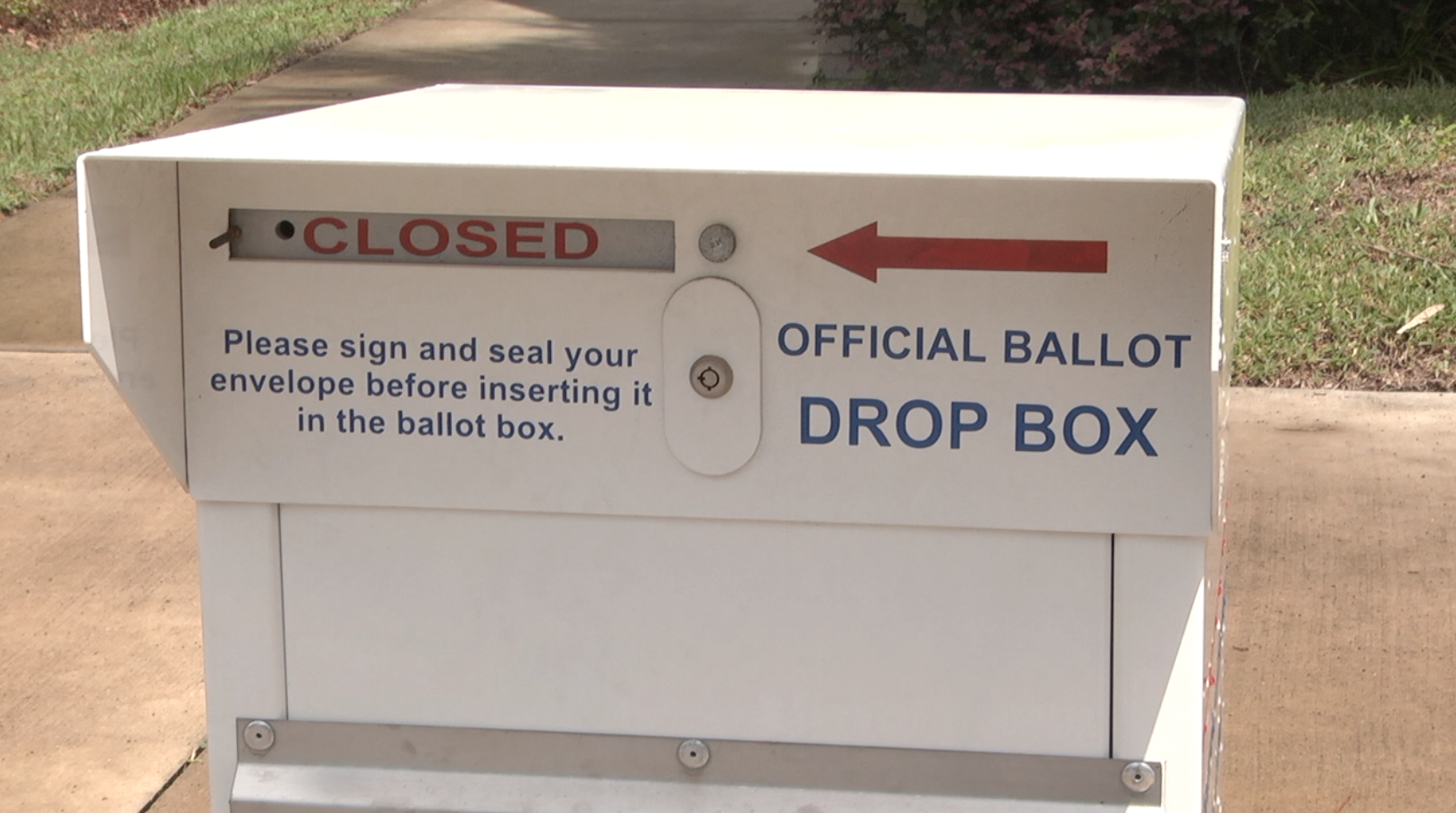
SPRINGFIELD – A safer way to turn in vote-by-mail ballots may soon be on its way to counties across the state after a measure by State Senator Julie Morrison (D-Lake Forest) to implement more secure drop boxes passed the General Assembly Thursday.
“We should make it simpler to vote – even in a non-COVID world,” Morrison said. “Everyone should have a safe and secure way to cast their ballot.”
House Bill 1871 would allow election authorities to establish permanent ballot drop boxes to accept vote-by-mail ballots.
One of every three votes cast during the November 2020 General Election was cast via a mail ballot – but many of those were hand-delivered to drop boxes.
Read more: Morrison’s secure drop box bill heads to governor
- Details
- Category: Senator Laura Murphy News
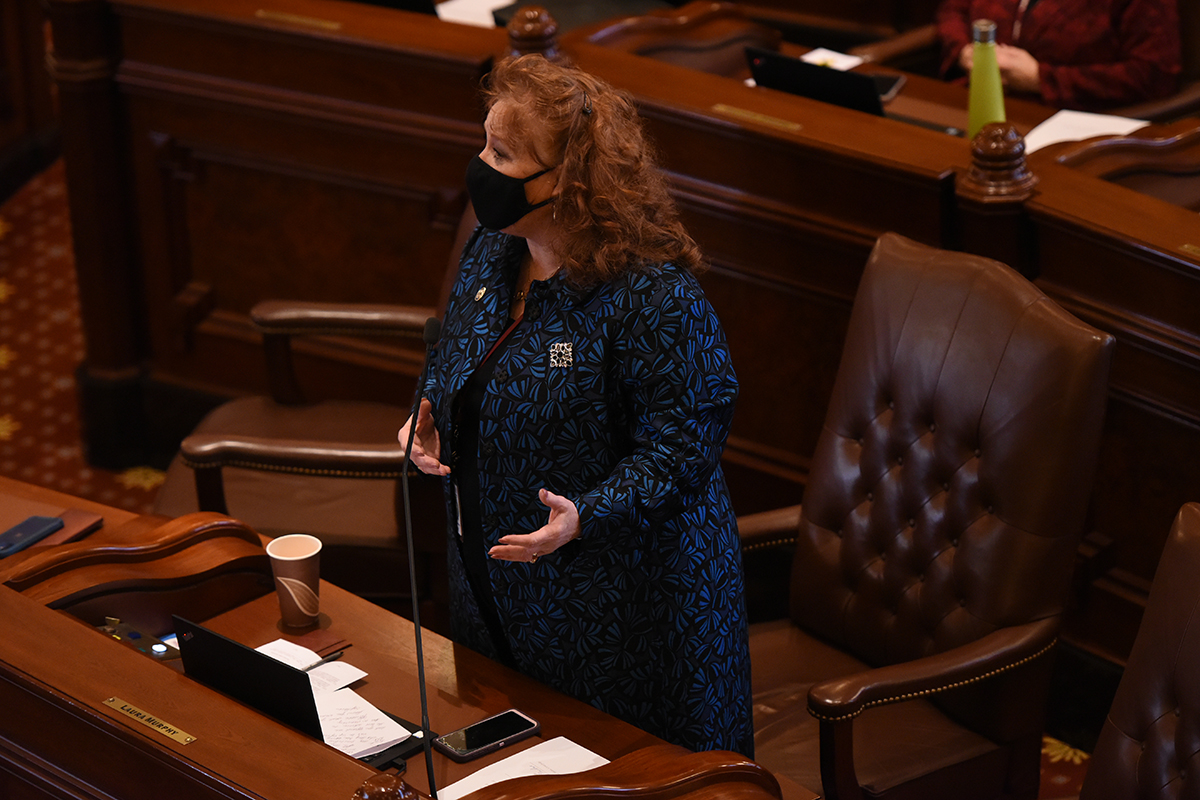 SPRINGFIELD – As Illinois moves toward a full reopening following the COVID-19 pandemic, State Senator Laura Murphy (D-Des Plaines) wants to ensure the legislature is involved in the decision-making process by reinstating the Restore Illinois Collaborative Commission.
SPRINGFIELD – As Illinois moves toward a full reopening following the COVID-19 pandemic, State Senator Laura Murphy (D-Des Plaines) wants to ensure the legislature is involved in the decision-making process by reinstating the Restore Illinois Collaborative Commission.
“The Restore Illinois Collaborative Commission gives legislators a chance to raise and address not only our own concerns, but the concerns we’re hearing from individuals in our communities,” Murphy said. “Our involvement in the reopening process is critical to ensuring Illinois’ families and businesses make a full recovery.”
Murphy’s proposal would reenact the Restore Illinois Collaborative Commission, a bipartisan, bicameral commission created last May to monitor and help shape the state’s economic recovery plans after the COVID-19 crisis.
The commission met from July through December 2020, joined by representatives from a variety of state agencies to ask questions and offer feedback to help advance the state’s recovery.
The commission originally sunset on Dec. 31, 2020, but in light of the continuing challenges of the pandemic, Murphy’s initiative would extend the operation of the commission by two years to Jan. 1, 2023.
“From the vaccine rollout to the relaxation of capacity limits, the state faces a lot of important decisions over the next few months,” Murphy said. “The executive branch doesn’t work in a vacuum—the people of Illinois must be heard when plans are being made.”
Senate Bill 632 passed the Commerce Committee Thursday and now heads to the full Senate.
- Details
- Category: Senator Cristina Castro News
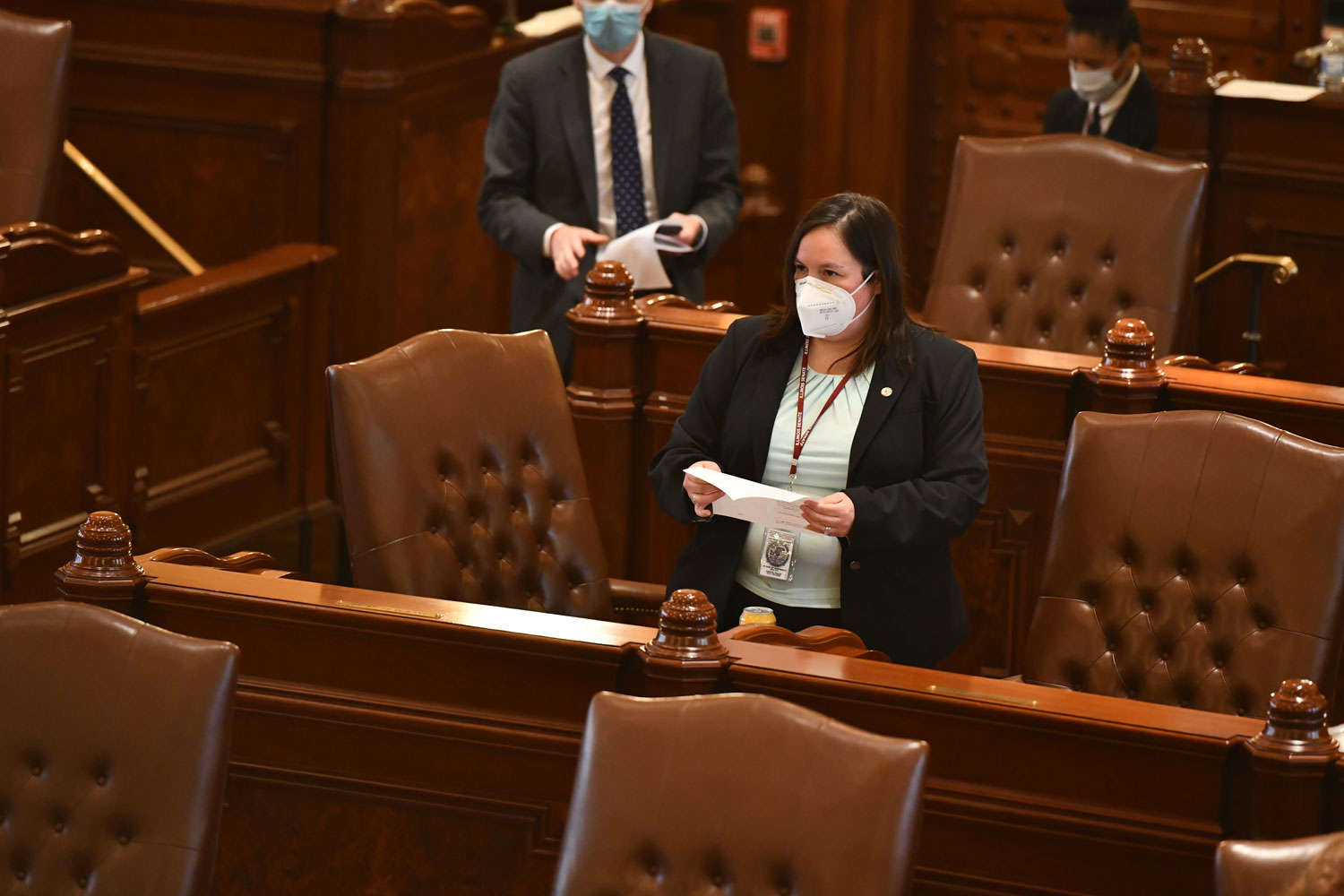 SPRINGFIELD – To make sure Kane County gets its fair share of the money from legal cannabis sales, state Senator Cristina Castro won approval of legislation giving the county a new deadline to file paperwork with the state.
SPRINGFIELD – To make sure Kane County gets its fair share of the money from legal cannabis sales, state Senator Cristina Castro won approval of legislation giving the county a new deadline to file paperwork with the state.
“One of the major selling points of legalizing cannabis sales was the revenue it would bring to local governments to support programs and services. This proposal makes sure Kane County will get its fair share,” said Castro, an Elgin Democrat.
Castro’s legislation is a technical tweak regarding the deadlines for counties to file paperwork with the state in order to begin collecting revenue from taxes on cannabis sales. Under this new window, Kane County would be allowed to begin collecting sales tax on cannabis in May of 2021.
Read more: Castro’s measure to bring tax dollars to Kane County passes General Assembly
- Details
- Category: Senator Patricia Van Pelt News
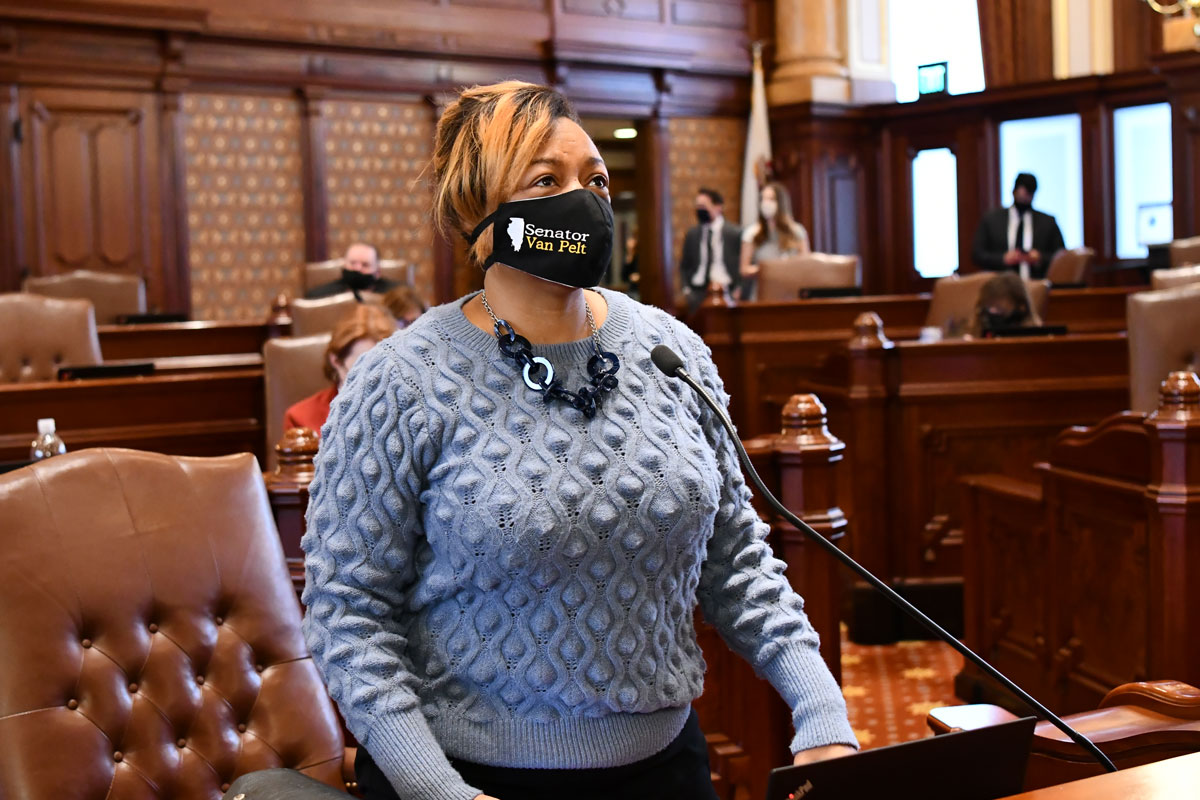 SPRINGFIELD – After months of conducting hearings on the barriers to access to health care faced by Black and brown Illinoisans, , State Senator Patricia Van Pelt (D-Chicago) passed legislation out of the Illinois Senate aiming to address structural disparities in the health care system.
SPRINGFIELD – After months of conducting hearings on the barriers to access to health care faced by Black and brown Illinoisans, , State Senator Patricia Van Pelt (D-Chicago) passed legislation out of the Illinois Senate aiming to address structural disparities in the health care system.
“The COVID-19 pandemic and activists spurred to organize by the events of the past summer have both further revealed what we’ve long known: Our health care systems need to change,” Van Pelt said. “I am excited that my colleagues and I could pass comprehensive legislation that will better the health of the Black and brown communities we represent.”
Access to health care, hospital closures, managed care organization reform, community health worker certification and reimbursement, maternal and infant mortality, mental health and substance abuse treatment, hospital reform, and medical implicit bias are all areas that are addressed in the massive health care measure.
The bill also includes several actions on racial justice, including creating an Anti-Racism Commission, as well as updating health care professional trainings to include implicit bias training in order to renew a license or registration.
“Making sure that everyone in the medical professional community has adequate implicit bias training was a top priority of this legislation,” Van Pelt said. “We heard from various experts for months about how important it was for professionals to understand their patients’ ethnic and socioeconomic backgrounds. Removing implicit bias is necessary to make sure everyone receives the best – and at times, lifesaving – care.”
The bill also requires the Department of Public Health to present the General Assembly with a State Health Assessment and State Health Improvement plan that seeks ways to improve the public health system, reduce health disparities and promote health equity.
House Bill 158 passed both chambers and now awaits the governor’s signature.
- Details
- Category: Senator Adriane Johnson News
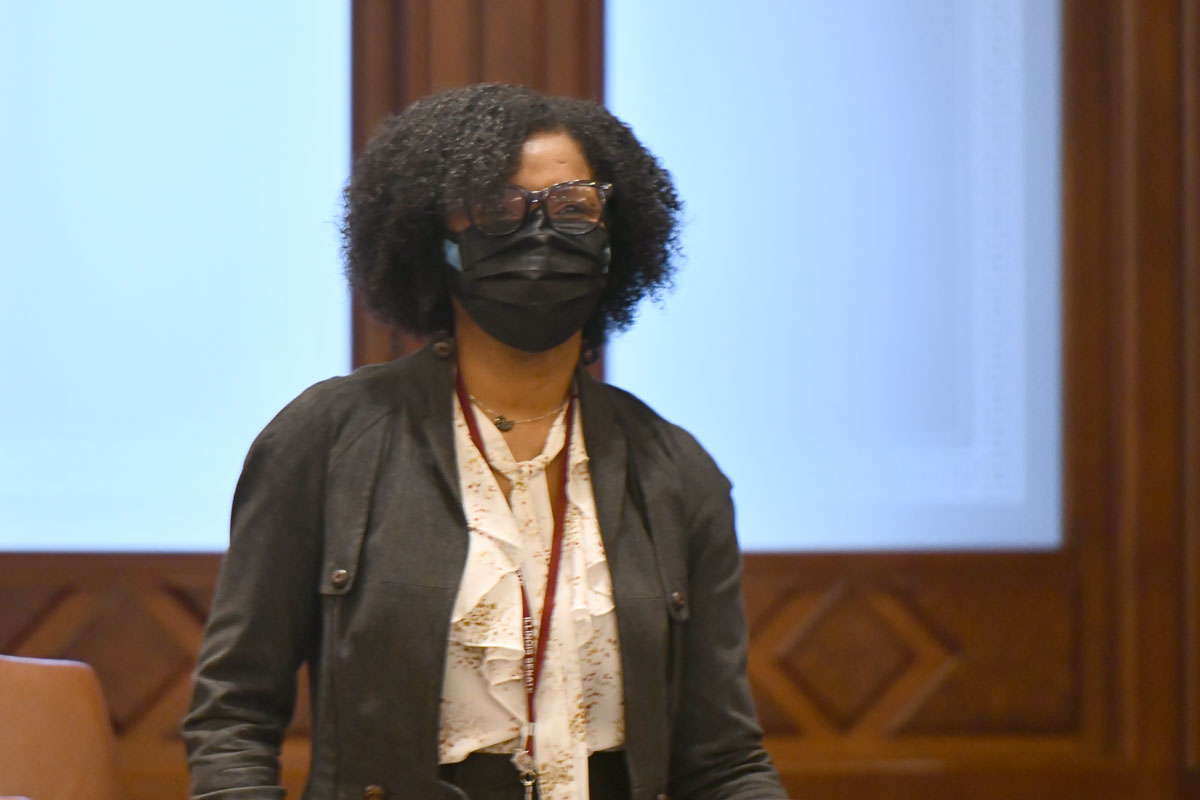 BUFFALO GROVE – With the life expectancy gap between Black and white Americans at its widest since 1998, State Senator Adriane Johnson (D-Buffalo Grove) said it’s more urgent than ever to enact the reforms proposed in House Bill 158, which seeks to eliminate racism and improve equity in Illinois’ health care system.
BUFFALO GROVE – With the life expectancy gap between Black and white Americans at its widest since 1998, State Senator Adriane Johnson (D-Buffalo Grove) said it’s more urgent than ever to enact the reforms proposed in House Bill 158, which seeks to eliminate racism and improve equity in Illinois’ health care system.
“The COVID-19 pandemic has exacerbated existing racial disparities in health and health care across the country, and these effects will linger in our communities long after we have defeated the virus,” Johnson said. “It’s time that every Illinoisan—including Black and Brown Illinoisans—has the support and resources they need to be well.”
Johnson is a co-sponsor of the initiative, which represents the health and human services pillar of the Illinois Legislative Black Caucus’s four-pillar agenda aimed at ridding Illinois of systemic racism.
The legislation contains a number of measures to expand services and improve health outcomes for underserved communities, including a provision to ensure health care workers undergo implicit bias training in order to root out racial prejudice in the delivery of medical care.
To fight the recent alarming rise in maternal and infant mortality rates, which are even higher among mothers and babies of color, the legislation would improve peri- and postnatal care in Illinois by increasing access to doulas and home visiting programs and preserving the availability of OB/GYN services in safety net hospitals.
Additionally, the initiative would support Illinoisans’ mental wellness starting at a young age by providing training to day care center and school staff on the topics of early childhood social emotional learning, infant and early childhood mental health, early childhood trauma, and adverse childhood experiences.
Other provisions address access to health care, hospital closures, Medicaid managed care organization reform, community health worker certification and reimbursement, hospital reform, and mental health and substance use treatment.
“Rooting out systemic racism in the health care system is a matter of life and death,” Johnson said. “This legislation takes long-overdue steps to support underserved communities and give all Illinoisans the thoughtful, high-quality medical care they need and deserve.”
House Bill 158 passed the Senate with a vote of 41-16 and now awaits the governor’s signature.
- Details
- Category: Senator Mike Simmons News
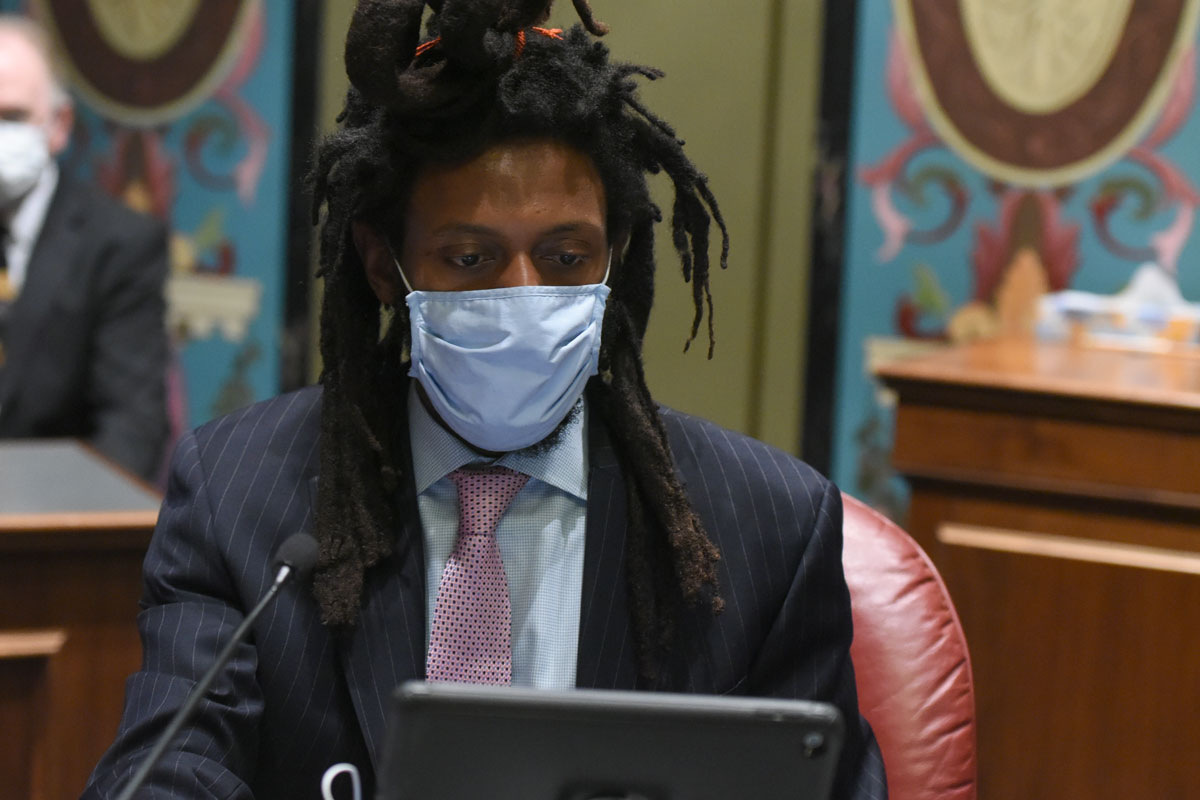 CHICAGO – State Senator Mike Simmons (D-Chicago) applauded the signing of a major economic reforms package Tuesday, the culmination of years of work on the part of the Illinois Legislative Black Caucus and advocates to address structural racism in Illinois’ financial systems.
CHICAGO – State Senator Mike Simmons (D-Chicago) applauded the signing of a major economic reforms package Tuesday, the culmination of years of work on the part of the Illinois Legislative Black Caucus and advocates to address structural racism in Illinois’ financial systems.
Among the reforms, Simmons said legislation capping payday loan rates at 36% and empowering employees to bring human rights complaints against their employers in particular are welcome changes that will help working people in the 7th Illinois Senate District.
“We need to push for an economy that roots out structural racism,” Simmons said. “These reforms should be a start to creating a path to an economy removed of some of the worst and most obvious forms of abuse.”
The wide-ranging economic reform package also included measures expanding the Illinois Equal Pay Act to hold employers of companies with more than 100 employees more accountable for how they pay their workers, as well as incentives to banks for providing lending and banking services to economically disadvantaged communities through the Illinois Community Reinvestment Act.
More Articles …
Page 534 of 762













 © 2026 Illinois Senate Democratic Caucus
© 2026 Illinois Senate Democratic Caucus